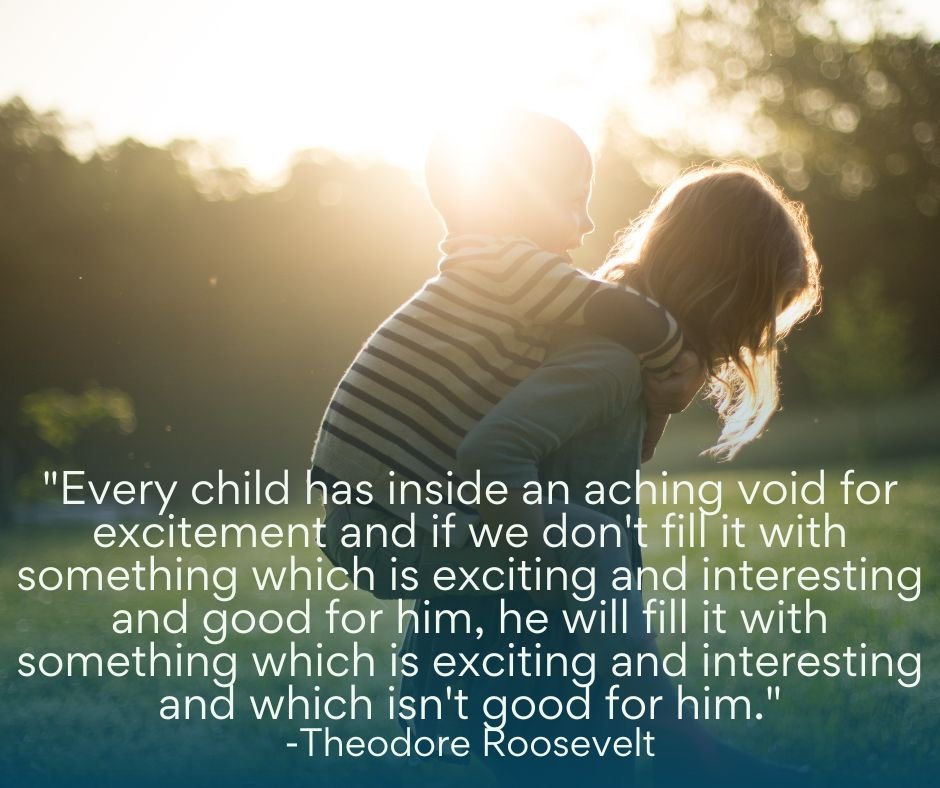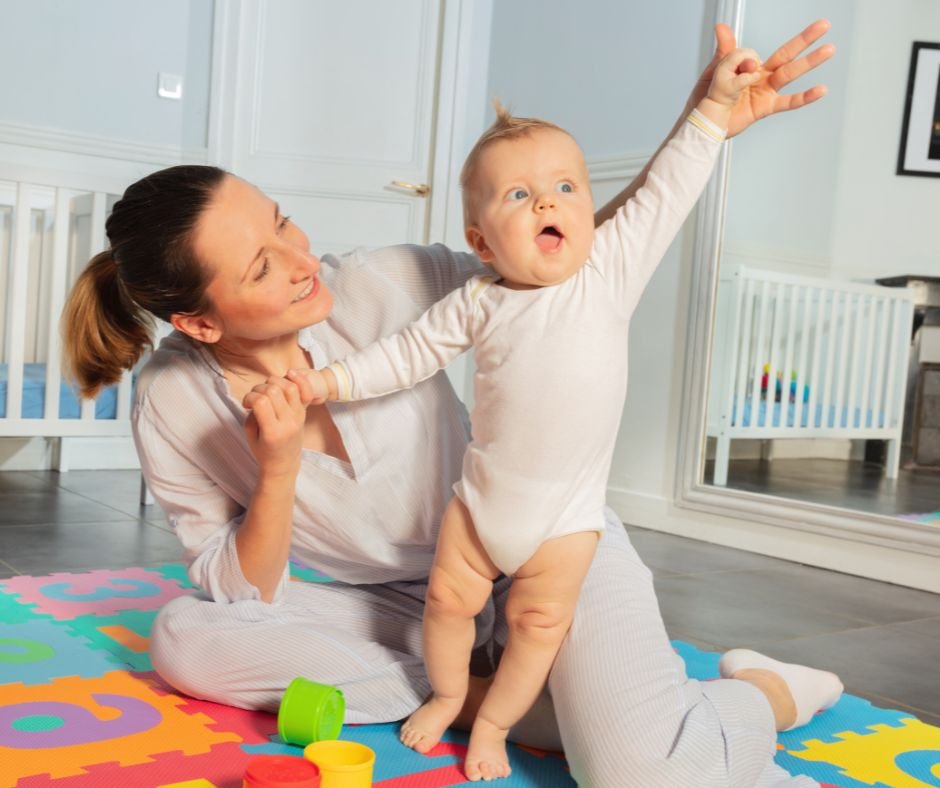
A mother’s job is to teach her children to not need her anymore. The hardest part of that job is accepting success.
Rochelle B. Weinstein
What makes humans different?
What is the role of a parent or teacher? For starters, without children needing to be nurtured and guided, we would have no role. We would be like a snake who lays her eggs and never returns, leaving her snakelets to fend for themselves in this harsh world.
Mammals are different as offspring are depended on their mothers who take care of their needs. They feed them, protect them, teach them to fend for themselves as well as how to behave in order to fit into groups. These skills are taught through play as well as by all members of the group, their community! Such are paramount to survival, reproducing and ensuring the continuation of their species.
Of all mammals, humans have the most dependent babies.
What is the goal of parenting and teaching?
When we understand our goal, it can easily be decided what supports it and what does not. What is the goal of parenting and teaching? If it is to accompany our children to reach self- actualisation, what would that mean? How would we support children so that they can become independent adults that will go on to reach their full potential and contribute to society. What skills do they need in our concrete jungle in order to honour their individualism, find meaningful relationships and have children of their own to pass their skills on to?
When we realise that goal of parenting and teaching is preparing a child for life, we understand that it is an ever-changing role that is about slowly stepping back, but never away!
How to parent and teach?
Such questions about parenting and teaching, have led to many discussions, books, courses and more. This is because the answer, as simple as it seems, does not come in a ‘one-size-fits-all’ package. So, starting with the answer might help both parents and teachers, understand their children.
Every child wants to know beyond a shadow of a doubt, that they are:
- Loved for who they are,
- and accepted.
How we choose to show them this, makes for an interesting discussion. Children engage in the world and evaluate their experiences, deciding for themselves what is ‘good’ or ‘bad’ and if they are ‘loved’ or ‘rejected.’ As the baby or child interacts with the world and those around them, they become aware of the feedback they are given. This feedback allows them to know if they are safe to continue or in danger. The way in which adults choose to react or respond to children, allow them to understand if they can trust the people in their life or not.

Children want relationship!
We need to understand that the driving force behind all learning, especially in babies, is connection. A child learns in order to connect and experience itself in relation to the world around it. Relationship begins with mom and dad (the primary caregivers). In understanding their value through meaningful interactions with mom and dad, a child comes to understand their ‘worth’. Feeling loved and a sense of belonging means that they can reach out to others and find their place in society.
This need for connection and a sense of belonging does not change as children get older. Sadly, our short comings as parents and teachers, lead children to understand that they are valued for what they do as opposed to who they are. Children who should be loved unconditionally, learn the conditions to love and become ‘human doings’ instead of ‘human beings.’
Praise and attention are acts of love!
Many people have heard about Gary Chapman’s five love languages. These include:
- words of affirmation,
- quality time,
- receiving gifts,
- physical touch
- and acts of service.
These are ways in which we can show children that we love and appreciate them. If these result in feelings of connection and love, withholding these can be seen as punishment. When we speak softly to a child or praise them, give them a hug, cheerfully do things for them, give them a token or just spend time with them, they feel valued. Associating an action with such a response, will mean that the child will do more of the action that resulted in this reward!
Give attention to what you want more of!
As a parent and teacher, it is easy to note that some areas, such as growth, do not rely heavily on us. If we feed a child and clothe them, chances are, they will get bigger. However, when it comes to ensuring that our children become mature adults with values and a strong character, our input is vital!
In understanding that children will grow towards that which we give attention to, it is important to take note of our behaviours. Children want our attention, and when they can’t get positive attention, negative attention is the second option to no attention at all.
Nowhere is this clearer, than in an experiment done in a French Orphanage post World War II. Orphan babies’ physical needs were seen to; however, touch, attention and affection was withheld. The result a high premature death rate. Surprisingly, the babies who experience negative touch in the form of spanking etc, had a higher survival rate!

One compliment for every seven criticisms in the homes!
According to Neil T. Anderson’s book, “Victory over the Darkness” a child will receive one compliment to every seven negative comments made in the average home. This is only slightly better in the classroom, where for every five negative comments, a child will receive one compliment. It is quite clear to see why many children have such poor concept of self.
Children who believe they aren’t good enough, soon settle for negative attention. When we only value and praise products (things children have done) and excellence, children begin to believe they do not deserve our affection and praise. After trying their best, but being looked over for so long, it becomes easier to settle for the complaints and demerits, finding praise among like-minded peers who seem to see some value in them.
‘Winning’ is addictive!
Understanding that we are all addicts, addicted to dopamine, allows us to use this to guide our children. Dopamine is the feel-good neurotransmitter which reinforces actions. The child who wants to experience pleasure, will understand the connection between the action and feeling good. When we praise a child and allow them to feel good, they will want to do more of the action resulted in that feeling.
When we praise perseverance, diligence, effort over excellence, we encourage children to develop these attributes. Not everyone is the best artist or reader, but everyone can do their best. Rewarding perseverance and the like, will mean that children will be less likely to give up. A child who never gives up has a great chance of eventually succeeding.
Losing is a pattern!
Losing, like many behaviours, is a pattern. Behaviours are often reactions triggered by feelings, based on when the child first felt that way and how they responded. The subconscious doesn’t know right from wrong, but only that these behaviours got me through the situation the previous time. Until the behaviour is challenge and changed, the subconscious will draw on this pattern it has laid down even if it results in ‘losing.’
Discipline versus Punishment.
The word discipline comes from the Latin word “discipulus” which means pupil, while the word punishment is the penalty you have to pay when caught doing something bad. This comes from the Old French word “punissement” and according to Wikipedia is described as the act or purpose of punishing, imposing and/or applying a sanction, a penalty to punish wrongdoing and especially for crime, a suffering by pain or loss imposed as retribution.
As we consider what children want and need, we may ask if discipline or punishment is more appropriate.

Punishment is fear-based.
The aim of punishing a person is to take away something from them on some level. This might include withholding something they want from them, taking away a physical thing or even emotionally making the person feel as if they have lost something, be it love, affection or trust.
Punishment does not seek to redirect, correct or teach a child how they can meet the need behind the behaviour, in a more appropriate, sociable manner. This means that the need behind the behaviour is not met, and the child is left without a way forward to do so in the future.
Instead, the child becomes scared of the consequences, be it pain, humiliation or feelings of rejection and abandonment. When children are no longer scared of the punishment, it is no longer effective, and parents and teachers have to resort to more scary consequences!
Punishment often sees the child as ‘bad’.
Punishment often focuses on the behaviour and fails to see it as separate from the child. We may see parents and teachers using phrases such as, ‘you are naughty’, ‘you are bad’ as opposed to ‘that is naughty,’ ‘that was a bad thing to do.’ When children’s behaviours are seen as an extension to who they are, they are not given the opportunity to choose better actions. The child believes he is ‘bad’ and ‘naughty’ and may take that on as a part of his identity. If this is who he is, he has no way of being anything else!
Parents and teachers should not label children.
Parents and teachers who label children as such, also put them into these boxes in their mind and seldom afford these children the opportunity to change their minds. This is when we as parents and teachers become bias allowing a child’s mistakes to overshadow any positive behaviour.
Punishment is abusive and damaging not only to the child, but the relationship between the adult and the child. The child learns that the adult is not to be trusted and that they are not on their side in life.
Discipline is love-based!
Discipline, on the other hand, focuses on the child rather than the behaviour. As we see above, a disciple follows an example set. Knowing this, reminds us as parents and teachers that we cannot walk around saying, “do what I say and not what I do.” No, we have a responsibility to demonstrate to our ‘pupil’ how to deal with all situations.
The goal of disciplining a child is acknowledging the need while offering the child a more appropriate way of asking for it, whether that be for some attention, or some space or even support. Discipline seeks to correct, amend and move beyond the transgression. It affords the child the opportunity to reconsider and do better.
Discipline is less concerned with the punishment and rather with the child developing skills to support him or her in the future.
Discipline promotes relationship!
Discipline sees mistakes as lessons. Because mistakes are part of the human condition, even parents and teachers (yes, even you) make mistakes. Showing that it is not so much about the mistakes, but the taking responsibility for them and doing our best to correct our behaviour, means that parents and teachers can apologies to children. This promotes relationship, and it is when children feel safe around adults, that they can learn to trust them. It is far more important to be fair and just, even if that means being humble enough to apologies to a child, rather than to be “right”.

Is not following through on unrealistic threats, a sign of weakness?
Some parents and teachers think that not following through on unrealistic threats, is a sign of weakness. To these people I would again say, apologies for your tantrum, and rather explain why you were triggered discussing the issue with the child. Is whatever your child did, worth sacrificing trust and the relationship you have with them? Acting unfairly is a quick way to lose a child’s respect!
What happens when the children are disrespectful?
Let’s look at this one closely. If children are dis-respectful, well quite frankly, you have lost their respect. Maybe they don’t trust any adults as their experience has taught them, that adults let children down. Trust and respect are earned and when children have consistently been shown that adults can act differently to what they say while they can’t, they become resentful towards them.
Adults poor behaviour
There are many ways that we let our children down and set weak examples. Here are some ways:
- Having rules for children that adults don’t have for themselves.
- Being inconsistent.
- Not keeping our word on important things.
- Being busy- social media is a big problem here.
- Shouting and throwing a tantrum when we are stressed.
- Dishing out punishment that is too harsh.
- Name calling
- Humiliating our child.
- Comparing our children with others.
- Belittling them.
- Threatening them.
- Swearing in front of them.
- Belittling others in front of them.
- Punishing all children when it was only certain children.
- Giving in to instant gratification ourselves… and more.
We need to notice our poor example. Listen for the times you might respond saying things like, ‘because I said so,” or “do what I say not what I do.” Observe when you respond in a selfish, greedy and jealous way. Remember that you are the adult. You might be able to vent your frustrations around other adults, but children are not there to deal with our big emotions and situations.
Children are not resilient.
I hate it when people say, “children are resilient”. Children often don’t have the words or the understanding of what is happening. However, as the reach their tweens, they are able for the first time to go back and assign meaning to those events they couldn’t before. As they do this, they may develop the opinion that an adult is not deserving of their respect. New to the understanding of opinions, they often see this as ‘fact’. This is when we often see the push back. We accuse them of changing yet, fail to see that we hadn’t worked on the relationship going into these years.
It is paramount to have developed a positive relationship with your child before this point in time.
Children are people too.
Remember your childhood. Did you respect your parents? Which were your favourite teachers and why? What would you do for the teachers you felt valued by? What difference did they make in your life? What events left a dent in your heart?
Fast forward to now? Do you still make mistakes? Are you perfect yet? How do you like to be treated when you slip up? Do you expect people to be compassionate and offer you a chance to make things right? And if you expect this, should we not treat our children with the same compassion and respect? Are children not entitled to the same which we are as human beings?
What is your goal?
Coming full circle, I end with the same question I began with? What is YOUR goal with regards to parenting and teaching? Do you see parenting and teaching as a way to mould children into the cut-out you’ve created for them in your mind. Where they are inherently bad and need to be ‘whipped into shape”. Or is parenting and teaching a role that facilitates as the child develops in order to reach their full potential.
Whatever it is, the choice is yours and so are the consequences, whether that be relationship, love and connection or not!
Contact us
If you feel that you need help yourself in this area, reach out to us. Our Parent-Child Profiling sessions are a great way to get to know your child better as you learn about yourself and your behaviours.

